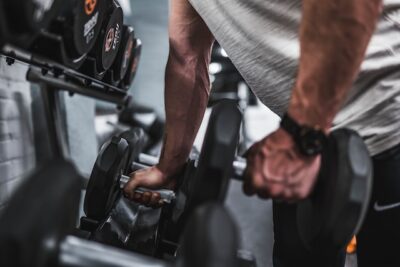Nutrition is a crucial aspect of building lean muscle mass. Building muscle is not just about lifting heavy weights; but it also involves a proper diet to provide the necessary nutrients for muscle growth.
In this article, we will provide you with a comprehensive guide on nutrition tips that will help you build lean muscle mass.
The Role of Protein in Building Lean Muscle Mass:
Protein is essential for muscle growth. It provides the necessary building blocks for muscle tissue repair and growth. To build lean muscle mass, you need to consume enough protein to support this process.
The recommended daily intake of protein varies based on weight, sex, age, and activity level.
However, as a general guideline, athletes and people who engage in high-intensity workouts should aim for 1.2 to 1.7 grams of protein per kilogram of body weight per day.
Animal sources of protein are complete and typically provide all the essential amino acids required for muscle growth. These include meat, poultry, fish, eggs, and dairy.
Plant sources of protein such as quinoa, buckwheat, beans, tofu, and tempeh are also good options for vegans and vegetarians.
Consuming a variety of protein sources ensures that you get all the required amino acids for building lean muscle mass.
The Role of Carbohydrates in Building Lean Muscle Mass:
Carbohydrates provide energy for exercise and support muscle recovery. They are critical for replenishing glycogen stores in the muscles after a workout. Without sufficient carbohydrate intake, the body may use protein as fuel, which can hinder muscle growth.
The recommended daily intake of carbohydrates also varies based on weight, sex, age, and activity level. However, as a general guideline, athletes and people who engage in high-intensity workouts should aim for 4 to 4.5 grams of carbohydrates per kilogram of body weight per day.
Fruits, vegetables, whole grains, and legumes are excellent sources of carbohydrates. These foods provide a steady release of glucose into the bloodstream, which provides sustained energy for workouts.
The Role of Fats in Building Lean Muscle Mass:
Fats are also essential for building lean muscle mass. They provide energy during exercise and support hormone production, which is critical for muscle growth. Healthy sources of fat such as olive oil, avocado, nuts, and seeds should be included in your diet.
It is important to note that not all fats are created equal. Saturated and trans fats found in processed foods and red meat should be avoided or consumed in moderation as they are linked to heart disease, obesity, and other health problems.
Hydration and Muscle Building:
Hydration is also critical for building lean muscle mass. Water transports nutrients to the muscles and aids in the removal of waste products. It also helps regulate body temperature during exercise.
Dehydration can impair exercise performance, decrease muscle strength and endurance, and hinder muscle recovery. Therefore, it is essential to drink enough water throughout the day, especially during exercise.
The recommended intake of water varies based on weight, sex, age, and activity level. However, as a general guideline, athletes and people who engage in high-intensity workouts should aim for 3 to 4 liters of water per day.
Supplements for Building Lean Muscle Mass:
While a well-balanced diet can provide all the necessary nutrients for building lean muscle mass, some supplements can enhance muscle growth. These supplements include:
- Creatine: Helps increase muscle strength, power, and size.
- Beta-Alanine: Helps delay fatigue during exercise, allowing for longer and more intense workouts.
- Whey Protein: A high-quality protein source that is easily digestible and absorbed by the body, making it ideal for post-workout recovery.
- BCAAs: Branched-chain amino acids (BCAAs) are particularly effective in preventing muscle breakdown during exercise.
- Guice: Known as the “dietary coach in a bottle,” Guice is packed with vitamins, minerals, and amino acids that can help support fitness goals such as building lean muscle mass.
Conclusion:
Building lean muscle mass requires a well-balanced diet that provides essential nutrients such as protein, carbohydrates, fats, and water. Consuming a variety of protein sources and healthy fats, staying hydrated, and considering supplements such as creatine and Guice can enhance muscle growth. With consistent exercise and proper nutrition, you can achieve your muscle-building goals.










